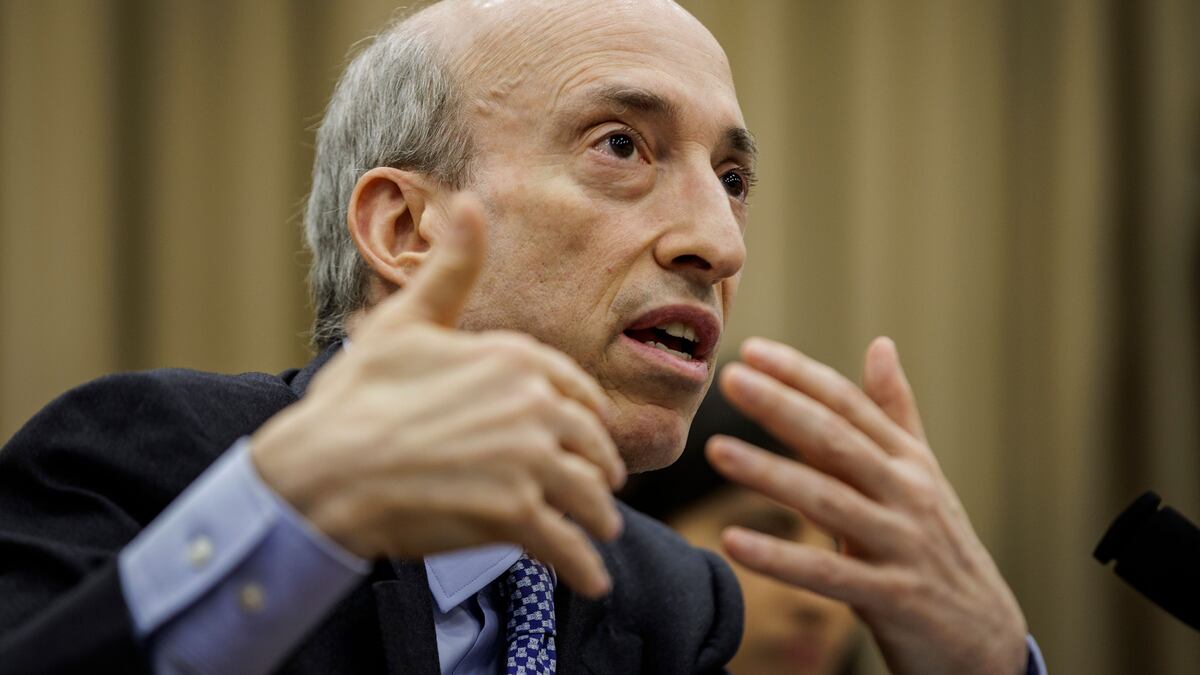- A Congressional watchdog has weighed in on a 2022 SEC staff bulletin that effectively scuppered banks’ plans to offer crypto custody services.
- The Government Accountability Office said that the bulletin is not just guidance, but amounts to a rule — and the SEC should have treated it as such by submitting it to Congress.
- Opponents of the bulletin’s provisions say that submitting it to formal rulemaking could help to nullify it.
In March 2022, the Securities and Exchange Commission published guidance on how public companies should account for crypto assets held on their balance sheets.
The crypto industry says the guidance — called Staff Accounting Bulletin 121 — has made offering crypto custody at scale prohibitively expensive, effectively scuppering the business model.
On Tuesday, the US congressional watchdog, the Government Accountability Office, decided that SAB 121 is not merely guidance but amounts to a rule.
“Therefore, the bulletin is subject to the requirement that it be submitted to Congress,” GAO general counsel Edda Emmanuelli Perez wrote in a decision.
Nathan McCauley, CEO and founder of Anchorage Digital Bank — which provides custody services in the US — told DL News that the decision is not legally binding, so the SEC doesn’t have to put SAB 121 through the formal rulemaking process.
But the agency could do so under pressure from the GAO, and thereby allow the public, industry, and Congress to weigh in and mitigate some of SAB 121′s most unpopular aspects.
That would be a “net positive,” McCauley said. “Industry and other regulators’ input into shaping these decisions helps make impactful law without unintended consequences,” he said.
The GAO decision also highlights the stress the SEC is under from lawmakers to rethink SAB 121.
Perez said the GAO was acting on a letter that Senators Cynthia Lummis and Patrick McHenry wrote to regulators earlier this year, asking them to look into the bulletin.
In that letter, the lawmakers said that by handicapping a nascent industry, SAB 121 puts customer assets at greater risk of loss.
“In sum, the effect of SAB 121 is to deny millions of Americans access to safe and secure custodial arrangements for digital assets,” Lummis and McHenry wrote.
And in late September, a bipartisan group of lawmakers published a draft law that would tear up SAB 121.
Watching the watchdogs
The US has laws that govern how regulators go about making rules. These laws require that before new rules can go into effect, an agency must submit a report to Congress and to the comptroller general, who can disapprove them.
In the case of SAB 121, the SEC did not submit a report. That would have been fine if SAB 121 really was just interpretive guidance.
But the GAO said that SAB 121 actually ticks all the boxes to be a rule — among other criteria, that it’s issued publicly by an agency with the intent to change the actions of regulated companies — and is therefore subject to the requirement that it be submitted to Congress.
The SEC, on the other hand, argued that SAB 121 was not an agency rule, as it was not a statement representing the full commission.
While that was true, the GAO said in its decision that a statement issued by a subset of the agency still constitutes an agency statement under the administrative laws.
The GAO is essentially an auditor of government agencies. According to its website, it aims to improve the performance of the government, ensuring transparency and saving money.
Scaring off custodians
The SEC said when it published SAB 121 that it was trying to limit new risks as more firms were coming in wanting to custody digital assets on behalf of investors.
But crypto industry insiders say the bulletin has scared off the global custodian banks and other firms from offering custody altogether.
These firms hold assets such as stocks or bonds on behalf of customers. They’re not required to record those on their balance sheet, as custodied assets are considered to belong to the customer rather than to the custodian.
While that remains the case for most assets, SAB 121 appears to force custodians to account for and disclose custodied digital assets in such a way as to make offering custody extremely expensive, especially for big banks.
That’s because global banks are also subject to federal banking regulation that penalise those that hold assets perceived as risky on their balance sheets.
It’s not 100% clear if custodians would have to face large penalties for holding crypto assets on their balance sheets. But the uncertainty alone has reportedly deterred a number of big firms from entering this business.
BNY Mellon launched a digital asset custody platform a year ago, but may not have realised it would run afoul of SAB 121, according to an application acquired by American Banker.
In March, State Street ended its deal to provide digital custody with UK-based Copper, which at the time partly blamed the “uncertain regulatory environment” in the US.
In July, exchange operator Nasdaq halted plans for its own service.
Have a tip on crypto regulation? Email the author at joanna@dlnews.com.


